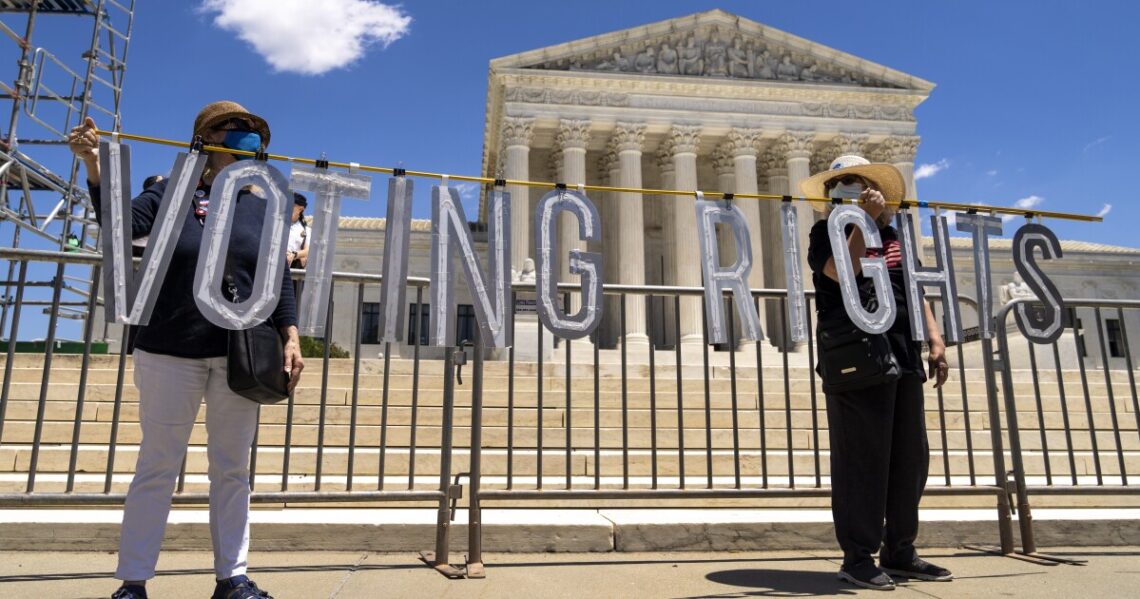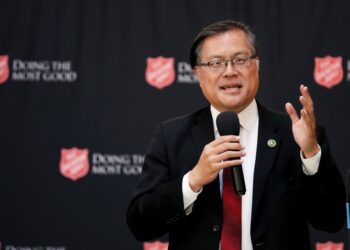A federal appeals court has struck down a key path for enforcing the Voting Rights Act.
The new ruling in an Arkansas redistricting lawsuit may set up the next U.S. Supreme Court fight that could further limit the reach of the Voting Rights Act’s protections for people of color.
The legal dispute is focused on who is allowed to sue to try to enforce key provisions under Section 2 of the landmark civil rights law, which was first passed in 1965.
Private individuals and groups, who did not represent the U.S. government, have for decades brought the majority of Section 2 cases to court. Those cases have challenged the redrawing of voting maps and other steps in the elections process with claims that the voting power of people of color has been minimized.
U.S. District Judge Lee Rudofsky, an appointee of former President Donald Trump, ruled in February 2022, however, that only the head of the Justice Department, the U.S. attorney general, can bring Section 2 lawsuits and dismissed an Arkansas redistricting case brought by advocacy groups representing Black voters in the state.
On Monday, that lower court ruling was upheld in a 2-1 vote by a three-judge panel of the 8th U.S. Circuit Court of Appeals.
“For much of the last half-century, courts have assumed that [Section 2] is privately enforceable. A deeper look has revealed that this assumption rests on flimsy footing,” wrote Circuit Judge David Stras, a Trump appointee, in the majority opinion joined by Judge Raymond Gruender, an appointee of former President George W. Bush.
Chief Circuit Judge Lavenski Smith, another Bush appointee, dissented.
“Until the [Supreme] Court rules or Congress amends the statute, I would follow existing precedent that permits citizens to seek a judicial remedy. Rights…
Read the full article here







